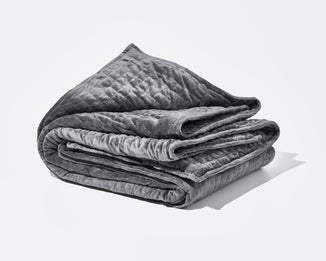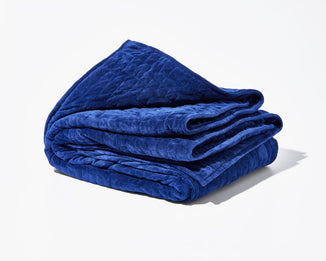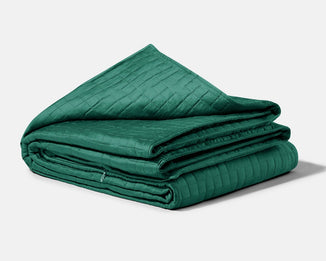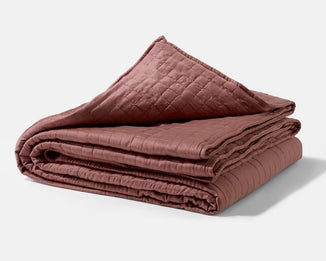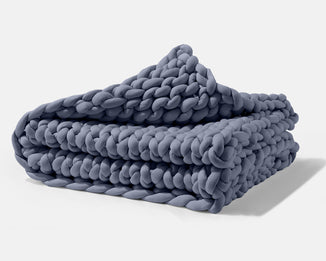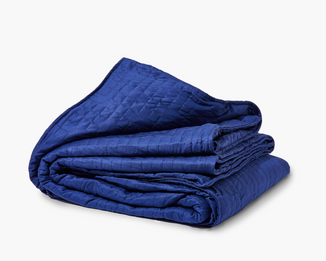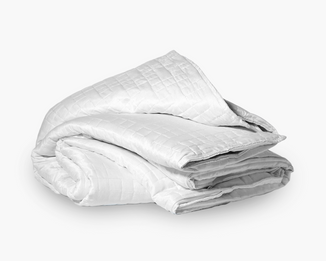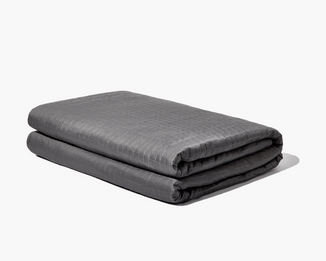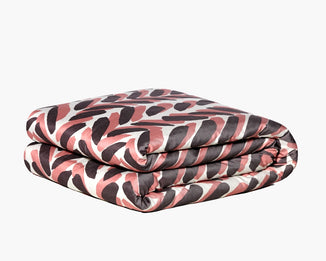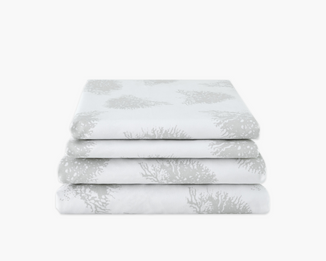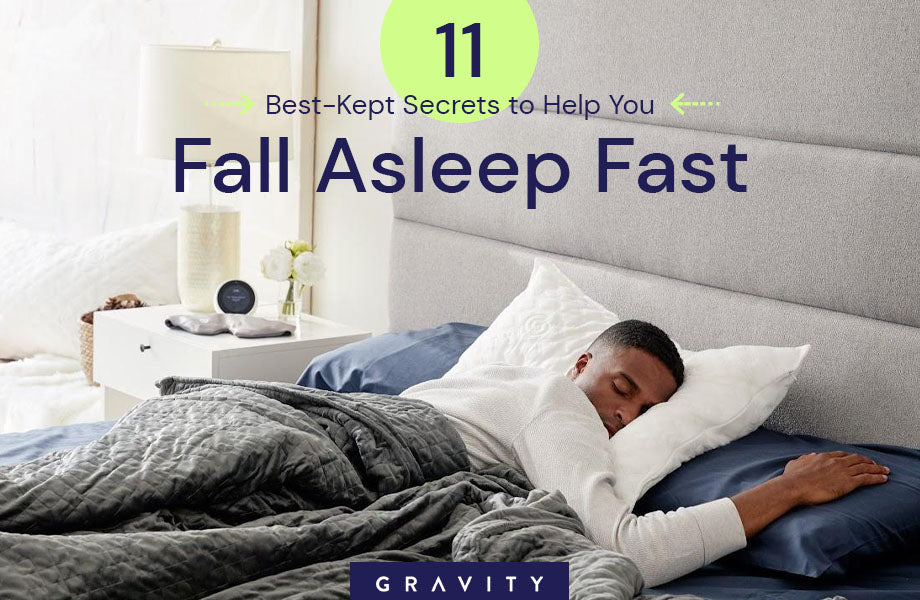
Jun 01, 2022
11 Best-Kept Secrets to Help You Fall Asleep Fast

Falling asleep should be a relatively quick and pleasant experience, and yet for many people, it can be a major challenge, fraught with anxiety and frustration. We all want to conk out quickly and get a quality night’s rest. Unfortunately, the list of things that can prevent us from nodding off at a decent hour is quite long. Poor sleep hygiene, misaligned circadian rhythms and hormonal changes such as menopause can all keep us awake and rob us of a good night’s sleep.
Luckily, there are a few secrets to falling asleep fast and improving your nightly rest. First, let’s set realistic sleep expectations by looking at how long it takes the average person to fall asleep. Then, let’s go over the best-kept secrets that can help you fall asleep fast and maximize your sleep efficiency.
How Long Should It Take to Fall Asleep?
The length of time it takes to fall asleep — or, in scientific speak, sleep onset latency — varies from person to person. But in general, it should take you somewhere between 10 and 20 minutes to transition from wakefulness to sleep.
Many factors can influence the time it takes you to fall asleep. These may include:
- Anxiety disorders
- Sleep disorders
- Poor sleep hygiene
- Poor sleeping environment
- Medications
- Diet
- Etc.
As with many sleep-related phenomena, researchers still don’t fully understand the exact mechanism behind sleep onset latency. However, they do know that the time it takes you to fall asleep can be a strong indicator of the amount and quality of sleep you get.

For instance, taking longer than a half-hour to fall asleep is associated with poorer sleep quality, which in turn is associated with a higher risk of cardiovascular disease, obesity, diabetes and other serious complications. On the other hand, falling asleep too quickly can be a sign that you’re not getting enough quality sleep during the night.
Tips to Help You Fall Asleep Fast
Ready to nod off in record time? We’ve got 11 practical tips on how to fall asleep fast and maximize your slumber.
1. Lower the Temperature
A warm bedroom may sound cozy and inviting, but research suggests you’ll fall asleep faster when your bedroom is on the cooler side. The reason? Your body temperature naturally declines at nighttime, signaling that it’s time to get some rest. Experts believe that keeping your bedroom at a cooler temperature can help us fall asleep faster by triggering the same get-ready-for-sleep signals.
So, where should you keep your thermostat settings at night? Most experts agree that the best sleeping temperature for healthy adults is somewhere between 60 and 67 degrees Fahrenheit.
2. Take Time to Relax in the Evenings
Evenings should be a time for relaxation, not stressing over work projects and tight deadlines. So, spend the hours after work engaging in activities that help you wind your body down naturally.
Need some ideas on how to decompress? Take your mind off work and other anxiety-inducing things with these stress-relieving activities:
- Practice light yoga
- Write in a journal
- Wind down with a cup of herbal tea
- Read a relaxing book
Try to follow the same routine every night — even on the weekend. The more your body associates these activities with sleep, the easier time you’ll have falling asleep.
3. Use a Weighted Blanket
Speaking of relaxing activities, wrapping yourself in a weighted blanket might be one of the most effective ways to drift off to sleep faster. The deep pressure of the blanket is thought to work by triggering the body’s “rest and digest” response, putting your body into a state of relaxation that makes it easier to wind down and fall asleep.

Research on weighted blankets is still in the early stages, but there is growing evidence to back them up. In a 2020 study published in the journal Sleep, researchers studied the effects of weighted blankets on 28 participants who struggled with falling and staying asleep. After six weeks, those who used a weighted blanket self-reported improvements in sleep quality and time falling asleep.
In another study involving 85 individuals (48 children and 37 adults) with autism or ADHD, researchers concluded that “weighted blankets showed a positive impact on falling asleep, sleeping the whole night, and relaxing during the day.”
Gravity Blankets Tip: Do you get hot easily during the night? Try our special cooling weighted blanket, made from breathable, moisture-wicking fabrics to help keep you cool and sweat-free as you snooze!
Shop Weighted Blankets Weighted Blankets4. Take a Warm Shower or Bath
If you want to nod off lightning-fast, try taking a warm shower or bath a couple of hours before bedtime. According to a report published in Sleep Medicine Reviews, bathing about 90 minutes before bed in warm water (104 to 109 degrees Fahrenheit) can help you fall asleep 10 minutes quicker than normal and improve your sleep quality to boot. Researchers hypothesize that taking a warm bath or shower aids the body’s natural cool-down process by bringing blood to the surface, allowing heat to dissipate quickly and facilitating a faster drop in core body temperature.
Gravity Blankets Tip: For an extra soothing bath, use Epsom salts or lavender bath bombs to ease stress and relax your body. If you prefer showers over baths, consider hanging eucalyptus from the showerhead. The steam from the shower will release the plant’s oils, filling the air with a calming scent that coaxes your awareness back to the present.

5. Use the Military Method
The military method isn’t new. Soldiers have been using the technique for decades to help them fall asleep faster in war zones and other stressful environments. But in recent years, this simple sleep hack has spread like wildfire on social media platforms such as TikTok, promising to lull insomniacs into a restful sleep in two minutes or less.
To start, you’ll take deep breaths and relax every part of your body — from the head down to the toes. Clear your mind for 10 to 15 seconds by imagining a relaxing scene. If your mind begins to wander, return to the peaceful scene until you fall asleep.
While the military method can help you fall asleep in minutes, don’t expect it to work like a charm on the first try. Keep practicing and you’ll eventually hit the two-minute mark.
6. Try the 4-7-8 Breathing Technique
If the military method doesn’t do it for you, try the 4-7-8 breathing technique. Developed by Dr. Andrew Weil, this simple technique was inspired by breathing exercises from Pranayama, an ancient yoga practice originating thousands of years ago in India.
Breathing techniques such as the 4-7-8 technique are designed to put the body into a deep state of relaxation. For this reason, they’re particularly useful if you’re having trouble sleeping due to nighttime anxiety or worries.
Here’s how to get started with 4-7-8 breathing:
- Find a comfortable place to sit or lie down. No matter which position you choose, make sure your back is straight.
- Place your tongue against the back of your two front teeth and keep it there.
- Part your lips slightly and exhale through your mouth, making a whooshing sound.
- Hold your breath for seven seconds.
- Close your lips and inhale through your nose for four seconds.
- Make another whooshing exhale from your mouth for eight seconds.
Practice this breathing pattern four times. By the end of the last cycle, your body should feel relaxed and ready for sleep.

7. Count Backward from 300 by 3’s
Is a racing mind preventing you from falling asleep fast? If so, you’ll need to find a way to quiet your busy brain. Experts say that engaging in a mindless activity, like counting backward from 300 in multiples of three, can help distract you from your thoughts and lull your body into a sleepy state. If you get distracted, redirect your mind back to your counting.
8. Make the Bed
Remember when your parents would get after you for not making the bed in the morning? As it turns out, they may have been on to something. According to a survey commissioned by the National Sleep Foundation, people who made their bed in the morning slept longer hours than non-bedmakers and felt better about going to sleep at night.
It makes perfect sense, given the negative impact clutter can have on our well-being. Clutter bombards our mind with stimuli, making us stressed out and unable to sleep. To that end, keep your bedroom tidy and make your bed every morning. Your sleep will thank you for it!
9. Create a Pitch Black Sleeping Environment
Sleeping in a dark room offers many benefits, one of which is falling asleep more easily. According to sleep experts, darkness prompts the pineal gland in your brain to start producing melatonin, one of the primary hormones involved in sleep regulation. Not only does melatonin help you fall asleep, but it also ensures a good night’s rest by helping you stay asleep.
There are a few different ways to keep light out of the bedroom. Blackout curtains are a good investment because they can block external light from the bedroom and save you money on cooling and heating costs.

If you’re looking to create pitch black wherever you are, you can’t go wrong with a weighted eye mask. On top of blocking 100 percent of light, our weighted eye mask delivers soothing pressure to the face. Eye masks are an especially great option for travelers, shift workers and those who like to nap during the day.
Shop Weighted Eye Masks Eye Masks10. Meditate
Meditation is another excellent option for those who struggle to turn off the “mental chatter” in their brains at night. This ancient Buddhist practice encourages you to be more aware of the present moment and observe your thoughts in a non-judgmental way. By focusing more on your breathing and how your body feels in the moment, you can let go of needless worries and fall asleep faster.
Silencing the chatter in your brain isn’t the only way meditation helps you fall asleep fast. Research also shows that meditation can help prepare our bodies for sleep by increasing melatonin production and triggering the relaxation response, encouraging us to let go of tension and drift off to sleep.
If you’re new to meditation and are looking for an easy way to dip your toes into this ancient practice, consider downloading a meditation app on your phone. Free meditation apps like Insight Timer have hundreds of thousands of guided meditations available to help you wind down and fall asleep at the drop of a hat.

11. Keep Tech Out of the Bedroom
If you enjoy scrolling through social media and texting in bed, you’re not alone. According to a 2018 observational study published in Sleep, 70 percent of adults use their mobile phones in bed.
Unfortunately, your late-night scrolling habits could be hindering your ability to fall asleep. The blue light emitted by your phone suppresses melatonin, making it difficult for your brain to wind down and go into “sleep mode.”
Instead of winding down for bed with electronics, choose activities that promote relaxation, such as yoga or reading a book. This will prevent blue light from interfering with your sleep-wake cycle.
Fall Asleep Faster with Gravity Blankets
If you’ve long struggled with insomnia, falling asleep in 20 minutes or less may seem impossible. But there are plenty of science-backed strategies to help you drift off to sleep. To fall asleep in record time and enhance your sleep quality, pick up our best-selling Gravity Weighted blanket. It will take your sleep and relaxation to a whole new level!
Image Credits
Rangga Wijaya/Shutterstock.com
Your use of this website, its content, and any products obtained through this website is at your own risk. This website, its content, and any products obtained through this website are provided on an “as is” basis, without any warranties of any kind, either express or implied, including warranties of merchantability, infringement of intellectual property, or fitness for any particular purposes. No warranty or representation is made with respect to the completeness, reliability, quality, or accuracy of this website or its content. This website, its content, and any products obtained through this website do not constitute medical treatment and is not a substitute for a medical examination or diagnosis. If you are dealing with a health condition check with your health care provider before using. This website may contain affiliate links that allow us to earn a commission on purchases made through such links. We may accept forms of advertising or sponsorships in connection with this website. There might also be paid topic insertions. We may accept and keep free products, services, and other forms of compensation from others.
